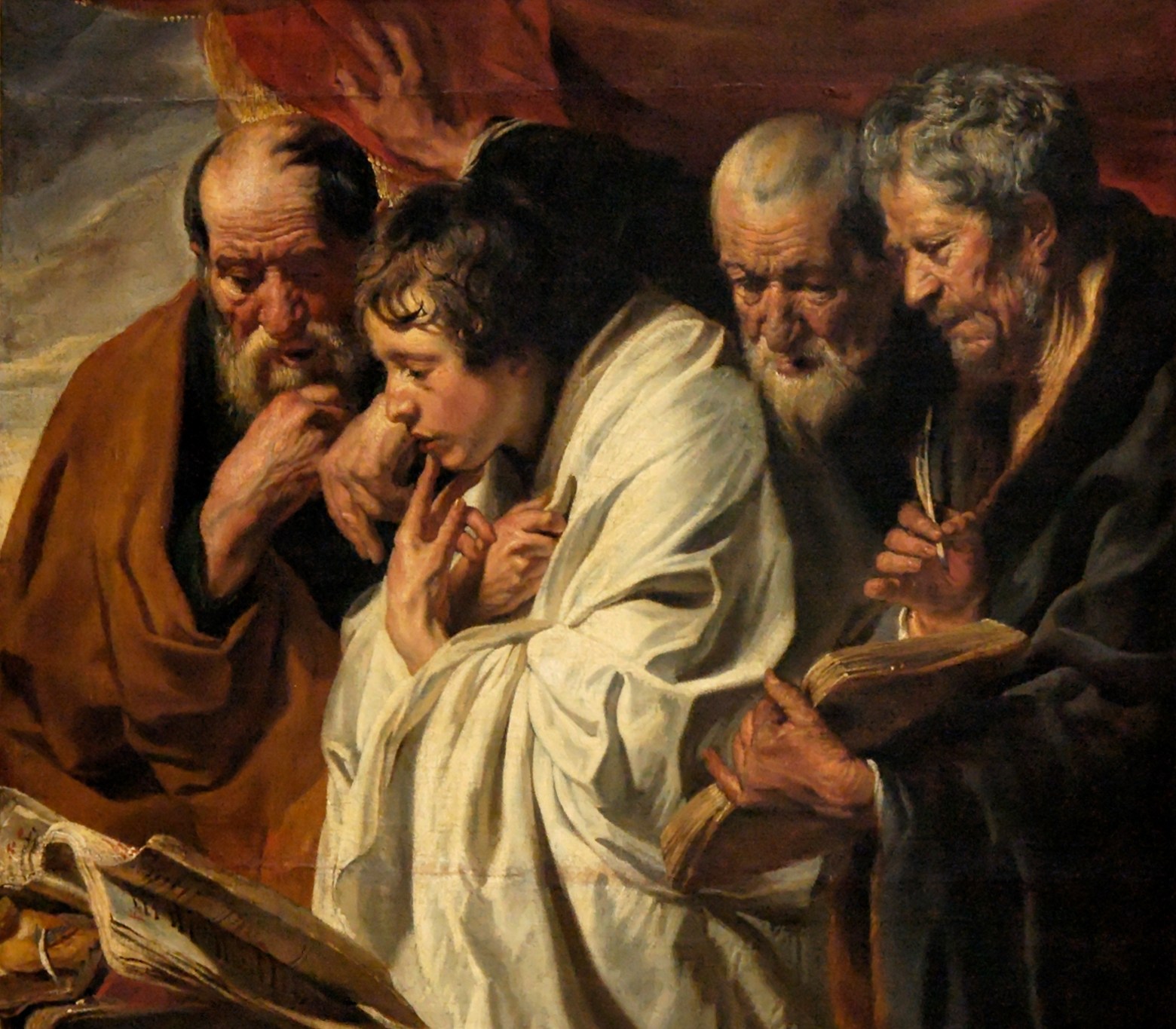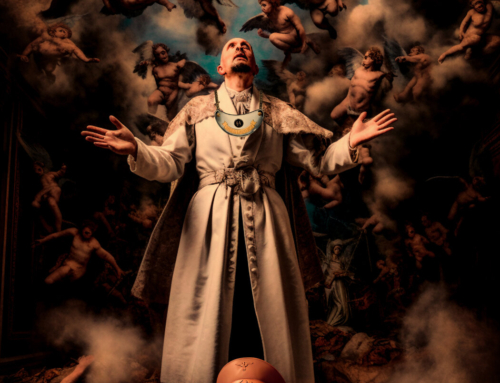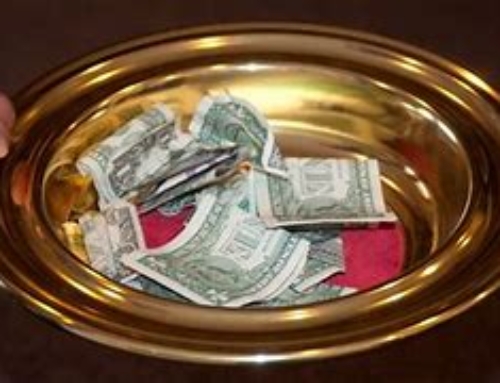The other day I indulged in a bit of a rant against the mainstream Bible scholars who have made an industry of de-bunking the gospels and trying to show them to be late compositions written by anonymous authors to add mythological magical details to the story of Jesus the peasant preacher from Galilee.
I received this discouraging comment on the post:
I am in a masters of theology program at a Catholic university right now. I have to say, the biblical courses I have taken so far have been spiritual position. The theories of Catholic “historical-critical” scholars of the 70s-90s are presented as incontrovertible. The Gospels were written late by unknown authors and almost none of the material contained in them actually happened. Almost all of it was made up after the fact by people who never saw or knew Jesus. Benedict XVI’s “Jesus of Nazareth” series is derided as not reflecting “real” biblical scholarship since he dares to examine the Gospels through the lens of faith rather than from a cold hard “scientific” point of view. The newer generation of Catholic biblical scholars who dare to question the “dogmas” of Raymond Brown, et al (such as Scott Hahn, Brandt Pitre, John Bergsma) are ridiculed. Any attempt to harmonize the Gospels is seen as fundamentalist and therefore unworthy of a “scholar.” It’s very disheartening.
Very disheartening indeed. Now I confess I am not a Biblical scholar by a long stretch. I was too lazy to really learn Greek and I certainly never found the self discipline and interest to learn Hebrew. I fell asleep trying to pick apart too many details of the Synoptic problem, and got bored by books written by German scholars whose last names ended with two “nn’s”
What seemed obvious to me was that the Biblical scholars were working within a bubble. As I did the research for The Mystery of the Magi time and time again I would come across the most transparent mistakes by the Biblical scholars simply because they were ignorant about some other aspect of the area of research. They drew conclusions based on false premises, mistaken information, lack of research and lazy acceptance of earlier unproven theories. I didn’t fault them for their unbelief, their cynicism or even their career-minded pettiness–but on a remarkable combination of ignorance and arrogance.
They may have known everything it was possible to know about the use of the passive tense in the second chapter of Colossians, but they had no clue about the larger issues.
Furthermore, even as a lazy seminarian I could see that many of the positions of the Biblical scholars club were specious. Here’s a classic: in trying to date the writing of the gospels they chose the date 70 AD. – the destruction of Jerusalem–as their fixed point. Because Jesus prophesied the destruction of Jerusalem, and this is recorded in the gospels, the gospels MUST have been written after 70 AD. But of course, this whole presupposition is based on the empiricism of David Hume who says so “brilliantly” –“Stories of miracles must be untrue because miracles can’t happen.” The whole premise of Christianity, on the other hand, is based on a miracle called the resurrection.
Anyway–one doesn’t even need to posit a miracle of supernatural future prediction in this case. Anybody with half a brain in first century Judea would have known that the Jews were a chronically rebellious people and that the Romans were a ruthless and thorough force who quashed rebellions without mercy. Jesus didn’t need to do a supernatural glimpse into the future to predict an upcoming disaster.
Despite this obvious blunder, the Bible scholars stick to this dogma like some hillbilly clinging to his gun. While clinging to this fixed date they ignore the other date of 65 AD which is the martyrdom of Peter and Paul in Rome. Because many of the scholars are Protestants it can be understood perhaps that this date is not so prominent in their thoughts as it is for Catholics. This date is important because at the end of the Acts of the Apostles–which was written by St Luke–St Paul is still alive. If he had been martyred St Luke would most certainly have recorded it.
This therefore dates the composition of the Acts of the Apostles before 65 AD and if Acts was written before 65 AD and Luke’s gospel was written before Acts, this places the date for Luke’s gospel back to the early 60s or late 50s. If Luke used Mark’s gospel as a source–on which almost all scholars agree–then Mark’s gospel must be dated to the mid or early 50’s. If there was an earlier version of Matthew which was written in Hebrew or Aramaic–something multiple early fathers including St Jerome testify to–then that “proto-Matthew” must be dated to the late 40s or even earlier….in other words, but ten or fifteen years after the death and resurrection of Jesus.
Who wrote the gospels? The scholars (already having dated the gospels later than 70 AD) conclude that they must therefore have been written by someone other than Matthew, Mark and Luke. They suggest the gospels were written by anonymous persons who then put Matthew, Mark and Luke’s names on them. This certainly happened with apocryphal writings like the second century Gospel of James and the Gospel of Thomas. But what makes this theory stumble in the case of the canonical gospels is that the allegedly anonymous writers (in the case of Mark and Luke) did not assign their work to an apostle. If they were going to do what the authors of the Gospels of James and Thomas did, they surely would have attached the names of Peter or Andrew–or some other apostle– to their work.
Brant Pitre points out that there is virtually no early church witness to the gospels being written by anyone other than Matthew, Mark, Luke and John.
So we are supposed to distrust all the early evidence from the first five hundred years of the church from people who were closer in time, culture and geography than we are by 2000 years, and instead believe scholars in the 21st century who have made it their career choice to dissect the gospels leaving little scraps for the faithful? Furthermore, listening to my commenter above, we’re supposed to trust men who mock their opponents, use ad hominem attacks, dismiss opposing positions without consideration?
This is one of the reasons I wrote The Mystery of the Magi because the magi story–more than almost any other–is considered by the scholars to be no more than a fanciful myth added to the gospel of Matthew to make Jesus seem more wonderful and amazing. I thought it would be fascinating to actually check things out in further detail and see if there actually were some characters that fit not only the Matthew story, but also the culture, economics politics, religion and history of the time.
My only concern is that the book is incomplete and that it was perhaps hurried. I’m due for a sabbatical next year. Maybe if COVID clears up I can head to the Holy Land and do some further on the ground research.







Leave A Comment
You must be logged in to post a comment.